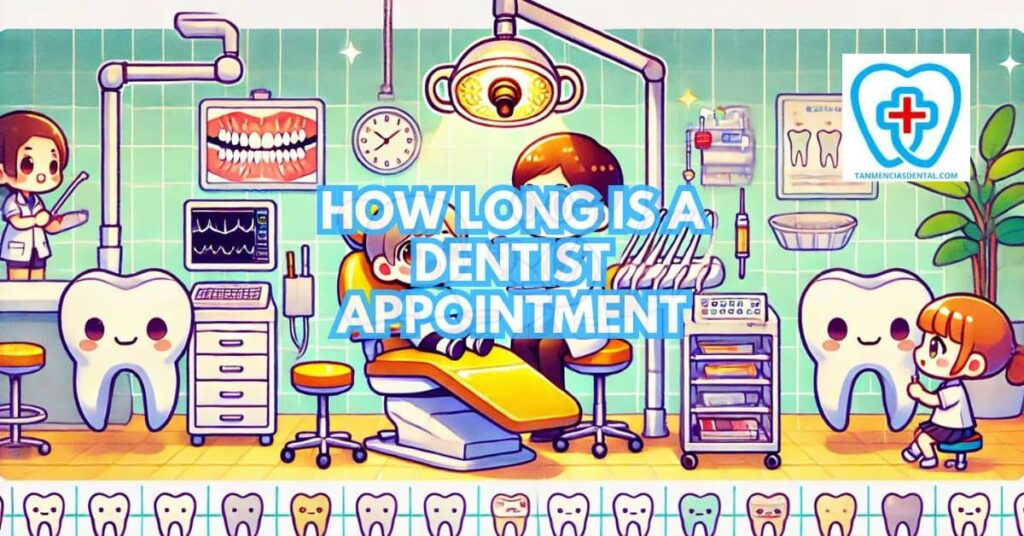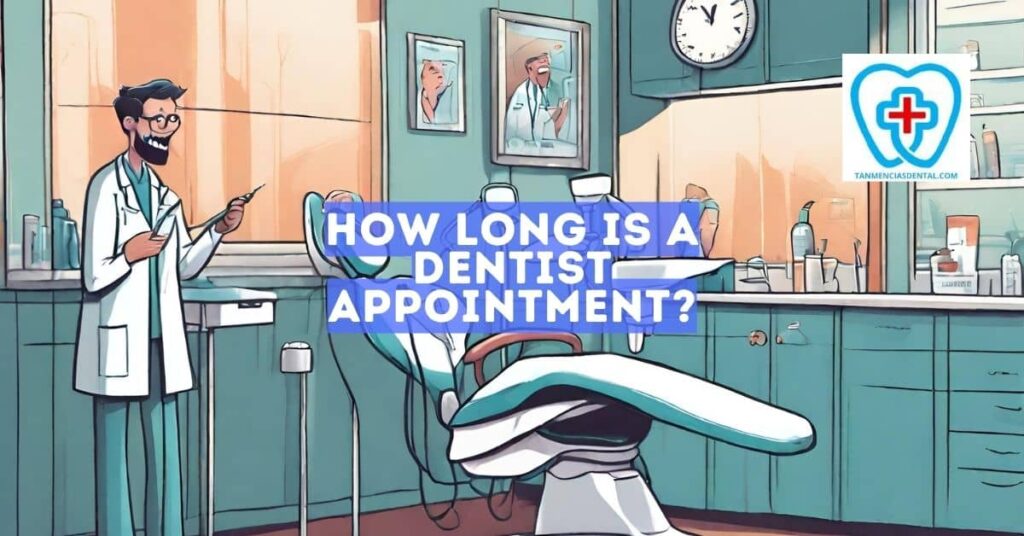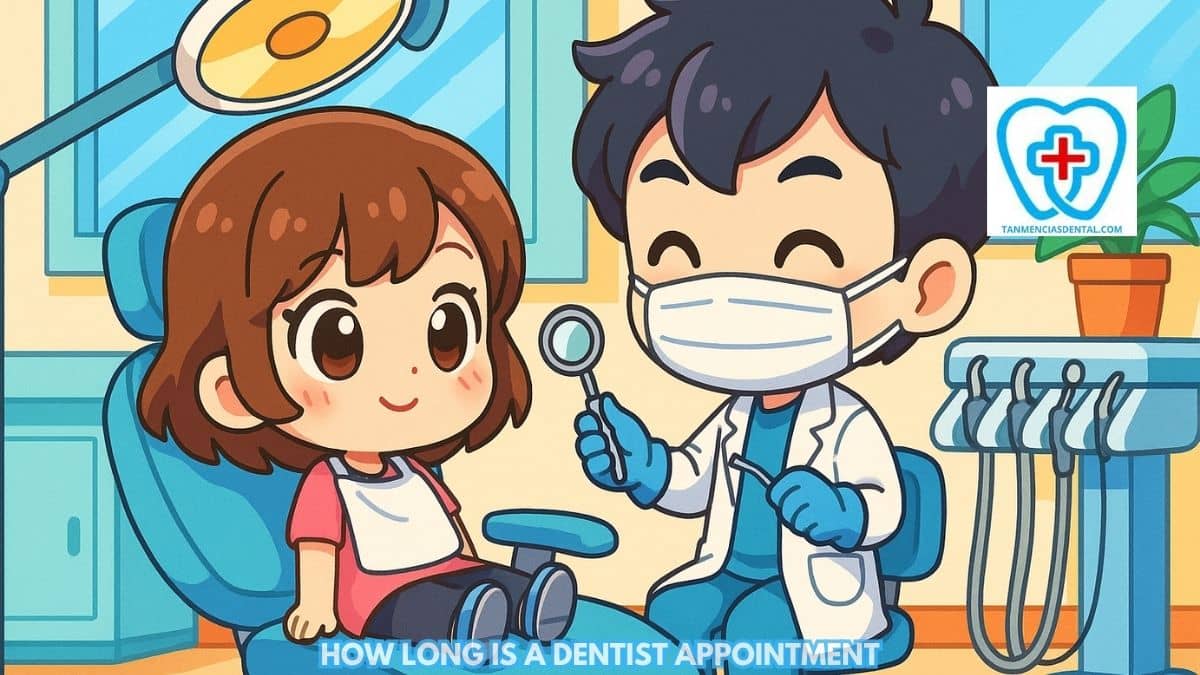Many people wonder how long a dentist appointment really takes, especially when planning their day.
The answer depends on the reason for your visit and the condition of your teeth and gums.
A routine checkup might take around 30 minutes to an hour, while more detailed procedures can last much longer.
New patients or those needing specialized treatments may spend extra time for exams, X-rays, or discussions about their dental care plan.
Understanding what affects how long a dentist appointment lasts helps you prepare and make the most of your visit.
1. First Dentist Appointment: Setting the Stage for Future Visits
The initial visit to a dentist is a critical step in establishing your oral health baseline.
During this appointment, the dentist typically reviews your detailed medical history and conducts a comprehensive oral examination, which may include X-rays to thoroughly assess your dental health.
This visit often includes a discussion about your dental hygiene practices, any cosmetic concerns you may have, and an overview of cosmetic dentistry options if you’re interested in improving the appearance of your teeth.
Because of the extensive ground covered, the first appointment may take longer than standard checkups, often lasting up to 90 minutes.
It also frequently includes teeth cleaning to remove plaque and tartar, ensuring your mouth is healthy from the start.
The primary goal is to create a tailored dental care plan that addresses your specific needs and makes future appointments more straightforward and focused.
This plan will help guide your dental care journey, ensuring optimal oral health and addressing any cosmetic goals you may have.
🦷 Is It Bad To Brush Your Teeth With Baking Soda?
2. Routine Dentist Appointment: The Backbone of Dental Health
A routine dental checkup is an important part of keeping your teeth and gums healthy throughout your life.
Most people should schedule this visit every six months so their dentist can catch small problems before they turn into larger ones.
During a cleaning appointment, the dental hygienist removes plaque and tartar that brushing and flossing may have missed.
The dentist then examines your teeth, gums, and mouth for signs of decay, infection, or other oral health issues.
X-rays may also be taken to look for hidden cavities or bone changes that are not visible during the exam.
The dentist or hygienist will explain how to improve your daily brushing and flossing routine to prevent future problems.
Paying attention to regular dental appointment times helps keep your visits short and effective since early detection often means simpler treatment.
These visits are one of the easiest ways to maintain a bright, healthy smile and avoid costly dental procedures later on.
🦷 Why Routine Dental Treatments Are Key to Avoiding Dental Emergencies
3. Dental Checkup: A Closer Look at Your Oral Health
A dental checkup at your dental office is a vital step in maintaining your overall oral health, providing your dentist with the opportunity to conduct a thorough examination of your teeth, gums, and entire mouth.
During this visit, your dentist may look for cavities, signs of gum disease, and other potential oral health issues that, if left untreated, could lead to more serious complications.
In addition to examining for decay and disease, the dentist may assess your bite and jaw alignment to identify any functional problems that could affect your oral health or comfort.
These comprehensive evaluations are essential for the early detection of problems, allowing for timely intervention and treatment.
By identifying and addressing issues early, your dentist can help you avoid more invasive and expensive procedures down the line.
Engaging in regular dental checkups is a cornerstone of preventive dentistry, aimed at preserving your natural teeth and keeping your smile healthy and bright.
These visits support not just your oral health but your overall well-being, underscoring the importance of consistent dental care.
🦷 Child Hates Brushing Teeth: Creating Positive Dental Habits
4. Dental Cleaning: Polishing Your Smile
Dental cleaning is a crucial procedure designed to enhance your oral hygiene by meticulously removing plaque and tartar accumulation that regular flossing and brushing might miss.
These harmful deposits, if not cleared, can lead to tooth decay and gum disease, threatening the health of your teeth and gums.
During a dental cleaning session, a skilled dental hygienist employs specialized tools to carefully and efficiently clean your teeth, ensuring no damage to your enamel or gums.
This includes the areas that are hard to reach with just floss and a toothbrush, providing a deep clean that bolsters your daily oral care routine.
After the removal of plaque and tartar, the dental cleaning concludes with a polishing process that targets any surface stains, significantly enhancing the aesthetic appeal of your smile.
The entire process, generally lasting between 30 and 60 minutes, is tailored to the individual’s specific oral hygiene needs, ensuring that each patient receives the most effective treatment.
By regularly undergoing dental cleanings, you are taking a proactive step towards preventing tooth decay and maintaining the health of your teeth and gums, thereby contributing to your overall well-being and confidence.
🦷 Are Electric Toothbrushes Sustainable? Worth the Hype for the Environment?

5. Dental X-Rays: Seeing Beneath the Surface
Dental X-rays stand as a foundational element in dentistry, offering a deeper insight that extends beyond what can be observed in a routine dental exam.
These imaging techniques are invaluable for uncovering issues lurking beneath the surface of the gums and within the tooth structure, such as hidden cavities or the early stages of bone loss that are imperceptible during a visual inspection.
The procedure for obtaining dental X-rays is designed to be swift and entirely comfortable for the patient, ensuring that the appointment time remains efficient without causing any discomfort.
Depending on the specific requirements of your dental assessment, the time allocated for X-rays can vary; straightforward bitewing X-rays may take just a few minutes, whereas a comprehensive full-mouth series could extend the duration of your visit slightly.
This variability ensures that the diagnostic process is both thorough and adapted to the buildup or extent of dental issues present.
By integrating regular X-rays into your dental care routine, your dentist can maintain a detailed and ongoing record of your oral health, allowing for the personalization of your treatment plan.
Such personalized care is pivotal in preemptively addressing potential problems and ensuring that your dental health is managed with the utmost precision and care.
🦷 Discover the Benefits of Using an Electric Toothbrush: Worth the Switch?
6. Dental Exam: The Final Check
After your teeth are cleaned and any necessary X-rays are taken, the dentist will conduct a thorough examination.
This final check aims to identify any signs of oral health issues that might require treatment.
The dentist will review the X-ray results, examine your teeth, gums, and mouth, and discuss any findings with you.
This is also the time for patients to ask questions or express concerns about their oral health.
The exam is a critical step in preventive care, ensuring that any issues are addressed promptly and efficiently.
🦷 Integrating Regular Dental Checkups into Your Wellness Routine
7. How Long Does A Dental Appointment Take for Cavity Treatment?
Treating a cavity usually begins with the dentist numbing the tooth so that the procedure is comfortable.
Once the area is ready, the dentist removes the decayed part of the tooth using special dental tools.
The space is then cleaned and prepared for a dental filling, which restores the tooth’s shape and function.
A simple cavity can often be treated in about an hour, but larger or deeper cavities may take longer.
If the decay is severe and the tooth structure is weak, the dentist might recommend a crown instead of a filling to protect it.
Placing a crown requires more preparation and may involve taking a mold of the tooth and fitting a temporary one while the permanent crown is made.
The total appointment time depends on the size of the cavity, the materials used, and whether additional steps, such as X-rays or polishing, are needed.
Getting cavities treated promptly prevents pain, infection, and the need for more complex procedures later on.
🦷 How to Eat After Brushing Teeth: Tooth-Friendly Eating
8. How Long Is The Average Dentist Appointment for Specialty Procedures?
Specialty dental procedures, such as root canals, dental implants, or orthodontic adjustments, require more time than routine visits.
The duration of these appointments can vary widely, from 90 minutes to several hours, depending on the complexity of the procedure and the specific treatment goals.
For instance, a single root canal may take about 90 minutes, while more complex surgeries or multiple treatments in one visit can extend the time significantly.
These appointments often involve detailed planning and precision work, reflecting the additional time needed.
Patients may also need to return for follow-up visits to complete the treatment or for post-procedure care.
🦷 How to Get Plaque Off Your Teeth With Braces
9. Understanding How Sedation Affects Your Appointment Time
Sedation helps patients feel calm and comfortable during dental treatments, but it can also prolong the visit.
Local anesthesia needs a few minutes to take effect before the dentist starts the procedure.
Using nitrous oxide, often referred to as laughing gas, adds extra time for setup and for the gas to wear off safely afterward.
Oral or IV sedation takes even more time because the dentist must check your vital signs before and after the procedure.
Patients who receive these deeper forms of sedation usually need someone to take them home, adding time to the overall visit.
🦷 Exploring the Benefits of Angled Toothbrushes

10. Can Dental Insurance Impact Appointment Length?
Dental insurance can affect how your treatment plan is arranged, even though it does not directly control the time spent in the chair.
Some insurance plans limit how often certain procedures can be done, which may lead to scheduling them across several visits.
Complex treatments sometimes require pre-approval, and waiting for that authorization can delay the start of care.
Conversations about coverage and payment options can also extend your time in the office as staff verify benefits or explain costs.
In some cases, follow-up appointments are needed when coverage rules prevent completing multiple treatments in one visit.
Understanding your insurance plan in advance helps reduce delays and makes your dental visits more efficient.
🦷 What Makes the Best Teeth Whitening Courses Stand Out from Others?
11. Why Some Dentist Appointments Take Less Time
Several factors can contribute to shorter dentist appointments.
Patients with excellent oral hygiene and no major dental issues can expect quick checkups and cleanings, as there are fewer areas of concern to address.
Advances in dental technology, such as digital X-rays and more efficient cleaning tools, can streamline procedures, reducing the time patients spend in the chair.
Experienced dental practitioners and well-coordinated dental teams can also expedite appointments without compromising the quality of care.
Regular dental visits and good at-home care are key to maintaining oral health and ensuring appointments are as efficient as possible.
🦷 How to Reduce the Swelling After Wisdom Teeth Removal
12. Why Some Dentist Appointments Take Longer
Conversely, there are several reasons why dental appointments might extend beyond the typical duration.
Discovering complex dental issues, such as advanced periodontal disease or multiple cavities, requires more in-depth treatment and discussion, lengthening the appointment.
Patients with dental anxiety may need extra time to feel comfortable and relaxed before proceeding with treatment.
Tailoring dental care to meet the specific needs and preferences of each patient can also require additional time, but it ensures a more personalized and effective treatment plan.
Educating patients about their oral health and discussing detailed treatment options are important and can add time to the visit.
🦷 Endodontic And Periodontal Treatment in Marikina
13. The Essential Role of Dental Assistants in Enhancing Appointment Efficiency
Dental assistants are vital to the smooth operation of a dental office.
They prepare treatment rooms and ensure that all necessary tools and materials are ready before the dentist arrives, which helps streamline the appointment process.
By managing these tasks, dental assistants enable dentists to focus more on patient care, thus reducing wait times and increasing the number of patients that can be seen in a day.
In addition to preparing the treatment rooms, dental assistants help with patient communication and education, explaining procedures and post-treatment care, which reduces patient anxiety and enhances their understanding of dental health.
This proactive approach not only improves the efficiency of appointments but also contributes to a positive experience for patients, fostering trust and satisfaction.
🦷 Tan-Mencias Dental Center for Families
👨⚕️ Conclusion
The length of a dentist appointment largely depends on your individual health needs and the type of dental procedure required.
Routine checkups and cleanings usually have a predictable timeline, often taking between 30 minutes and an hour.
However, specialized treatments or unexpected dental issues can make appointments longer.
Communicating effectively with your dentist about your dental history, current health, and treatment preferences can help set realistic expectations and manage appointment durations.
Regular dental visits and good oral hygiene practices are key to reducing the need for lengthy and complex procedures, helping ensure a healthier smile and more predictable appointment times.
😊 Self-Promotion
At Tan-Mencias Dental Clinic, located in the heart of Parang, Marikina City, we’re dedicated to providing you with a comfortable, personalized dental care experience that shines as brightly as your smile.
Our friendly team is here to ensure your visit is as pleasant and effective as possible, offering the latest in dental technology and techniques.
For any questions or to schedule your next visit, feel free to call us at 0917-145-1074, send us a message through our Facebook page, or reach out via our website’s contact form.
We’re here to make your dental health journey seamless and positive.
Let Tan-Mencias Dental Clinic be your partner in achieving and maintaining the radiant smile you deserve!
❔ FAQs
1. How long does a regular dental checkup and cleaning take?
A regular dental checkup and cleaning usually takes about 30 minutes to an hour.
This time allows the dentist and hygienist to clean your teeth, check for cavities, and review your overall oral health.
If it has been a while since your last visit or you have built up on your teeth, the appointment may take a little longer.
2. Why do first-time dental visits take more time?
Your first dental visit takes longer because the dentist needs to review your medical history, take X-rays, and do a full oral exam.
This helps them understand your dental health and plan any needed treatments.
New patient appointments often take between 60 and 90 minutes.
3. How long do dental procedures like fillings or root canals take?
A simple filling can take around an hour, while a root canal may last 90 minutes or more.
The time depends on how complex the problem is and how many teeth need treatment.
Some procedures might also require more than one visit.
4. Does using sedation or anesthesia make the appointment longer?
Yes, using sedation or anesthesia can extend your appointment time.
Local anesthesia needs a few minutes to take effect, and deeper forms like oral or IV sedation require monitoring before and after the procedure.
You may also need extra time to recover before leaving the dental office.
5. What can I do to make my dentist appointment faster?
Arrive a few minutes early, fill out any forms in advance, and share your medical and dental history with the staff.
Keeping up with regular cleanings and good daily oral care can also help shorten future visits.
The better your oral health is, the quicker and smoother your appointments will be.

